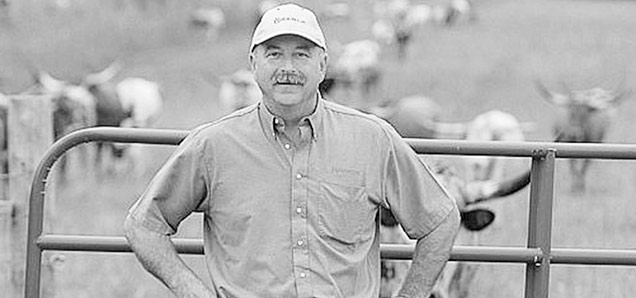A firsthand look into farming sustainability
 CREDIT: YU RANCH
CREDIT: YU RANCHBryan Gilvesy will give a talk about sustainable practices at 2 p.m. on January 16 in D1060 for Fanshawe�s Sustainability Speakers Series.
“Sustainability” is a word that's being tossed around a lot these days, but what does it actually mean? How can regular people live more sustainable lives, and how can larger entities, such as farms, incorporate sustainable practices into their operations?
Bryan Gilvesy will be tackling all these questions and more when he presents as part of Fanshawe's Sustainability Speakers Series on January 16 in D1060 at 2 p.m.
Gilvesy is the proprietor of YU Ranch in Tillsonburg, Ontario. He described the ranch as a profitable enterprise, social enterprise and model for sustainable agriculture. “First and foremost, it's an operating farm that makes a living for us.
”Y U Ranch has broken new ground in a number of sustainable farming techniques, and other local farms are following in its footsteps.
“We've pioneered a lot of techniques around using restored native vegetative cover as part and parcel of our farming operation,” said Gilvesy. The ranch uses native tallgrass prairies, an ecotype that is largely missing from this area.
“[It's] an essential ecotype for grassland birds, a lot of insects, a lot of pollinators, and some animals like badgers. They are also highly effective at sinking carbon, because they have extremely deep roots.” YU Ranch uses native tallgrass in the feed for its cattle, making this environmentally beneficial biomass a practical part of the farm's operations.
Gilvesy was also proud to say that YU Ranch focuses on developing pollinator hedgerows to protect native pollinators for farmers. “They're about two kilometres of trees and shrubs that flower through the season, planted as a hedgerow for the farm. They provide a habitat for native pollinating bees and wasps and other insects and allow them to move out and pollinate field crops. Rather than eliminating any habitat for bees, we make more and understand how the farms can work in relationship with these pollinators.”
When he comes to Fanshawe, Gilvesy will speak about how his ranch went from being unsustainable to one that now wins awards for its environmentally conscious practices. “The transition is important to give people a clue how they can access sustainability concepts and make them important parts of their lives.” He will also lead a discussion about what sustainability is and how it can work for the average person.
“We're rethinking the existing paradigms, and for us, that has opened massive opportunities, both for our creative lives and for our business,” he said. “In this is an opportunity to be creative, to carve out your own niche as a human being, and to ... control your own destiny a little bit more. Sustainability can help people define their place in the world, I think.”
Join Gilvesy in D1060 on January 16 beginning at 2 p.m. For more information on YU Ranch, check out yuranch.com.
The Sustainability Speakers Series continues on February 13 in D1060 with a docu-comedy called Your Environmental Road Trip, in which three friends take a yearlong road trip across the United States with the goal of producing zero garbage. The Series wraps up on March 6 in D1060 with a documentary entitled Chasing Ice, which could change the way you think about climate change. All sessions are free and open to all students, faculty and staff at Fanshawe College.
For more information, contact sustainability@fanshawec.ca.













